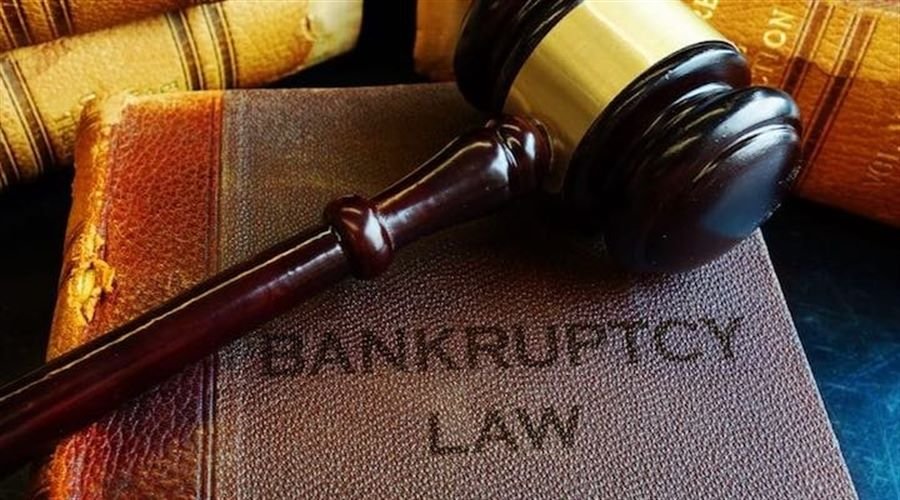The crypto lender Genesis filed for Chapter 11 bankruptcy late on Thursday following the company’s troubles with liquidity triggered by two major collapses in the cryptocurrency industry last year. It came when the company was reportedly seeking to raise capitalbut failed.
Genesis Files for Bankruptcy
According to the official announcement, Genesis Global Holdco and its two lending subsidiaries, Genesis Global Capital and Genesis Asia Pacific, filed for a Chapter 11 voluntary petition in a Manhattan court. Barry Silbert, the CEO of Digital Currency Group, controls these companies.
However, only the lending business of the brand has filed for bankruptcy protection. Genesis’s other subsidiaries that offer derivatives, spot trading, custody services, and Genesis Global Trading, are not included in the bankruptcy proceedings.
Check out the latest FMLS22 session on “Digital Assets’ Marketing Under A Magnifying Glass.”
The Debts of Genesis
In the bankruptcy documents, Genesis Global Capital is estimated to have more than 100,000 creditors and has liabilities between $1 billion and $10 billion. The liabilities of the other two companies are estimated to be in the range of $100 million and $500 million, respectively.
Genesis has proposed a roadmap to exit with a bankruptcy plan, proposing a resolution of the claims with the formation of a trust. The filing highlighted that it needs to repay a $765.9 million loan to Gemini, a $78 million loan to the decentralized platform Donut, and another $53.1 million loan to the VanEck fund.
“We have crafted a deliberate process and roadmap through which we believe we can reach the best solution for clients and other stakeholders,” said Paul Aronzon, an independent Director at Genesis.
“We look forward to advancing our dialogue with DCG and our creditors’ advisors as we seek to implement a path to maximize value and provide the best opportunity for our business to emerge well-positioned for the future.”
The troubles of Genesis started last year with the collapse of the Three Arrows Capital and received the final blow with the fallout of FTX last November. Additionally, the company was pressured to repay $900 million that was kept in locked deposits and received from the users of Gemini Earn.
“While we have made significant progress refining our business plans to remedy liquidity issues caused by the recent extraordinary challenges in our industry, including the default of Three Arrows Capital and the bankruptcy of FTX, an in-court restructuring presents the most effective avenue through which to preserve assets and create the best possible outcome for all Genesis stakeholders,” said the Interim CEO of Genesis, Derar Islim.
Meanwhile, the US federal securities regulator brought charges against Genesis and Gemini for offering unregistered securities in the form of crypto lending products. Another crypto lending platform, Nexo, recently settled with US regulators paying a total penalty of $46.5 million.
The crypto lender Genesis filed for Chapter 11 bankruptcy late on Thursday following the company’s troubles with liquidity triggered by two major collapses in the cryptocurrency industry last year. It came when the company was reportedly seeking to raise capitalbut failed.
Genesis Files for Bankruptcy
According to the official announcement, Genesis Global Holdco and its two lending subsidiaries, Genesis Global Capital and Genesis Asia Pacific, filed for a Chapter 11 voluntary petition in a Manhattan court. Barry Silbert, the CEO of Digital Currency Group, controls these companies.
However, only the lending business of the brand has filed for bankruptcy protection. Genesis’s other subsidiaries that offer derivatives, spot trading, custody services, and Genesis Global Trading, are not included in the bankruptcy proceedings.
Check out the latest FMLS22 session on “Digital Assets’ Marketing Under A Magnifying Glass.”
The Debts of Genesis
In the bankruptcy documents, Genesis Global Capital is estimated to have more than 100,000 creditors and has liabilities between $1 billion and $10 billion. The liabilities of the other two companies are estimated to be in the range of $100 million and $500 million, respectively.
Genesis has proposed a roadmap to exit with a bankruptcy plan, proposing a resolution of the claims with the formation of a trust. The filing highlighted that it needs to repay a $765.9 million loan to Gemini, a $78 million loan to the decentralized platform Donut, and another $53.1 million loan to the VanEck fund.
“We have crafted a deliberate process and roadmap through which we believe we can reach the best solution for clients and other stakeholders,” said Paul Aronzon, an independent Director at Genesis.
“We look forward to advancing our dialogue with DCG and our creditors’ advisors as we seek to implement a path to maximize value and provide the best opportunity for our business to emerge well-positioned for the future.”
The troubles of Genesis started last year with the collapse of the Three Arrows Capital and received the final blow with the fallout of FTX last November. Additionally, the company was pressured to repay $900 million that was kept in locked deposits and received from the users of Gemini Earn.
“While we have made significant progress refining our business plans to remedy liquidity issues caused by the recent extraordinary challenges in our industry, including the default of Three Arrows Capital and the bankruptcy of FTX, an in-court restructuring presents the most effective avenue through which to preserve assets and create the best possible outcome for all Genesis stakeholders,” said the Interim CEO of Genesis, Derar Islim.
Meanwhile, the US federal securities regulator brought charges against Genesis and Gemini for offering unregistered securities in the form of crypto lending products. Another crypto lending platform, Nexo, recently settled with US regulators paying a total penalty of $46.5 million.






